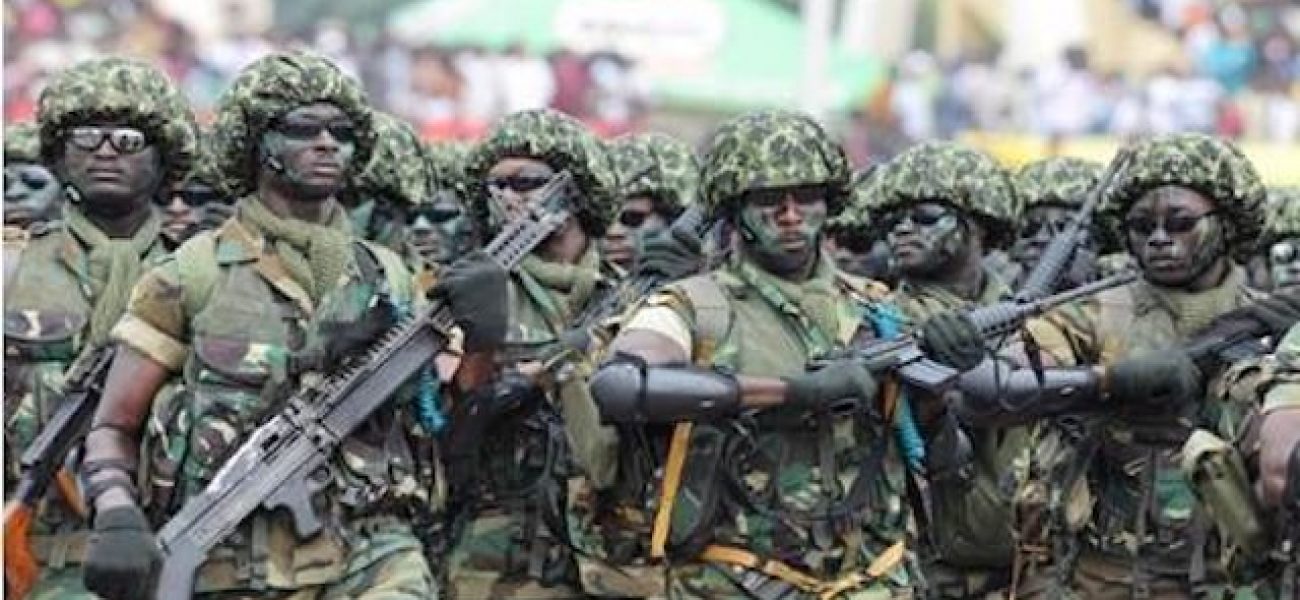The Senate on Wednesday, 28th September 2022, raised concern over the Armed Forces Support Fund (Establishment) Bill sent to it for concurrence by the House of Representatives. Some Senators who spoke on the bill, opposed the proposed means of funding, stating that monies to be appropriated to the Armed Forces through the Support Fund were enormous and should be reviewed. This is also in the light of the fact that the military is already highly funded through budgetary allocations. The Senate went on to refer the report on the bill to its Committee on Defence for further legislative scrutiny.
The House of Representatives had earlier passed the bill, to provide special financial support for revamping of the Nigerian Armed Forces with the provision of regular training for Armed Forces personnel and the provision of modern security and defence equipment. The bill establishes a Nigerian Armed Forces Support Fund which is aimed at improving the skills of personnel of the Armed Forces to enhance their efficiency in the fight against insurgency and all external aggressions against the Nigerian State.
The Support Fund established by the bill will be financed by:
- An amount constituting 1% of the total money accruing to the Federation Account;
- 0.5% of profit made from investment of the National Sovereign Wealth Fund (NSWF) by the Nigerian Sovereign Investment Authority (NSIA);
- An amount constituting 1% of Value Added Tax (VAT) remitted to the Consolidated Revenue Fund (CRF);
- Any take-off grant and special intervention fund as may be provided by the Federal Government, States and Local Governments of the Federation;
- An amount constituting 1% of the air ticket contract, charter and cargo sales charge to be collected by the airlines and paid over to the Support Fund;
- Aids, grant and all assistance from international agencies, non-governmental organisations and the private sectors; and
- Money derived from investments made by the Support Fund.
These monies shall be collected and remitted by the Federal Inland Revenue Service (FIRS) and appropriated by the National Assembly. The fund shall be utilised to purchase modern military equipment and machineries for the Nigerian Armed Forces and provide continuous training and acquisition of knowledge and skills by personnel of the Nigerian Armed Forces all over the world, for proficiency in use of modern machineries. In addition, the bill makes financial provisions for the day-to-day administration of the Support Fund through annual budgetary allocations appropriated by the National Assembly, take-off grants and other monies to be made available to the Support Fund.
The bill also establishes a Nigerian Armed Forces Support Fund Management Board that will have general control of the Support Fund and investment of monies that accrue to the Fund. This includes approving disbursement of monies from the Fund to finance relevant projects and activities under the bill, as well as briefing the National Assembly on the activities, programmes and progress of the Support Fund on a quarterly basis. The Management Board comprises the President, who will be the Chairman of the Board, all military service chiefs, the National Security Adviser and other members from relevant government agencies and labour unions.
The bill establishes an Implementation Committee for the Support Fund, comprising the military service chiefs, the Finance Minister and five other members appointed by the Board. The Chief of Defence Staff will be the Chairman of the Committee. It shall be responsible for implementing projects approved by the Management Board. Also, the Support Fund shall have an Executive Secretary appointed by the President and responsible for the day-to-day running of the Fund, as well as working with the Implementation Committee .
Growing insecurity in recent time manifested in the form of kidnapping, banditry and terrorism have drawn questions about the efficiency of the Nigerian military, especially with the huge amounts of money appropriated in the last few years for security agencies to be better equipped to tackle the insecurity. However, it appears that what is indeed lacking is the political will to decisively deal with insurgency.
Accountability is also a major issue with regard to established funds and in general, in relation monies appropriated to various agencies of government by the National Assembly and the revenue generated by these agencies. The impunity with which public funds are misappropriated compounded by the fact that in most cases, no one is held accountable, has increased reservation among the citizenry for establishments such as this. In addition, the bill’s provision on cessation of office for the Management Board, which provides that the Chairman of the Board may be removed by the President needs to be revisited. This is impracticable since the President is the Chairman of the Board.

